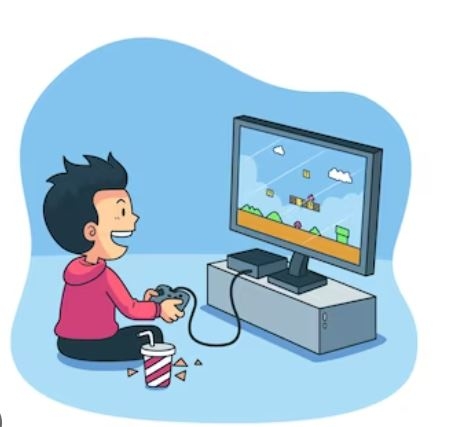Dr. Amanda Klingensmith
School’s (almost) out for summer! And what does that mean for most kids? A lot of extra time on their hands!
Some of the most frequent concerns heard by child psychologists this time of year is, “I hope my child doesn’t spend the whole summer playing video games! Is this something they can get addicted to? How do I get them to engage with the family and do other things?” If these concerns sound familiar to you, keep reading!
First, it’s important to mention that video games are not all bad! There are many reasons that video games are alluring to kids (and teens and adults!), and believe it or not, there are some benefits to gaming. People can play video games with friends across the world, which can help them stay in touch with friends and family that do not live nearby. Players often experience a sense of mastery and ongoing achievement, which can help boost self-esteem. Video games also offer a more appropriate outlet for aggression, and a sense of control that can be hard to find elsewhere. Additionally, video games help many people find a sense of community that can be hard to find out in the “real world.” They allow people to escape from reality temporarily, role play different characters to be whoever they want to be, and can provide a sense of discovery and a place to explore fictional/alternate worlds (safely).
But how much video game usage is too much? There is no “one-size-fits-all” answer to this question. Every child and every family is different! Some experts recommend a maximum of 1-2 hours per day on school days, and 4 hours per day on non-school days. Some people are very well functioning even when they play more frequently than that, but for others, these guidelines may be too much time. To help you decide what “too much” gaming time looks like for your family, here are some warning signs to watch out for:
- Time warp—inability to determine time spent on gaming/cyber activities
- Lying about gaming/cyber activities
- Changes or disruptions in sleep patterns
- Craving games/cyber activities
- Withdrawing from family and friends
- Losing interest in other hobbies and recreational activities
- Gaming/internet use for more than two hours a day, more than four days a week
- Poor performance at school or at work
- Physical ailments: backache, carpal tunnel, stiff neck, nerve pain, eye strain
- Inability to see the negative consequences of gaming/cyber activity
- Buying game items or skills with real money
- Eating meals at the computer
- Glorifying gaming/cyber activity
- Emotional disturbance when game/electronic devices are taken away
- Mood swings
- Withdrawal symptoms after playing games/cyber activity (headache, malaise, light-headedness)
- Continued gaming/cyber activity despite serious adverse consequences
- Persistent inability to cut down on gaming/cyber activity
- Ever-increasing amounts of time spent gaming/engaging in cyber activity
- Obsessing about gaming/cyber activity even when not playing/online

If you have determined that you want to set more limits and boundaries around electronics use after reading this blog, our licensed psychologists at McCaskill Family Services would be happy to help you come up with a plan that works for your specific family, and can help you implement it consistently! Some common elements of these types of plans include encouraging time spent on other hobbies and activities, using gaming as a reward for engaging in other aspects of life, a written and signed behavioral contract, parental monitoring during video game time, consistent time limits, and the use of a collaborative problem-solving approach so that your child feels like they have a say in the solution.
If you would like help coming up with a specific plan to help your child use gaming appropriately and remain engaged in other aspects of life this this summer, please contact our front office to schedule a parent session with your child’s therapist.



